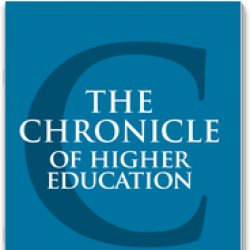 The Chronicle of Higher Education reports on ever-closer ties between academia and industry in Computer Science:
The Chronicle of Higher Education reports on ever-closer ties between academia and industry in Computer Science:
“Professors and industry leaders across the computer-science landscape say that their worlds have never been closer and that a new generation of tech giants is leading the push …
“The reasons are clear. Academics need access to the data and scale that only industry can generate, not to mention the money that large corporations like Google, Facebook, and Yahoo provide in an age of dwindling federal research dollars. Students need to interact with the companies that will eventually employ a growing number of them. Corporations need a line to the talent and ideas percolating inside academe …
“The University of Washington is so gung ho about forging industry relations that it encourages faculty to leave the department for leadership roles at top companies. Ed Lazowska, a former chair of Washington’s computer-science and engineering department and the founding director of its Microsoft-sponsored eScience Institute, says the university nudged one professor to become the founding director of Google Seattle and another to help establish the nearby Allen Institute for Artificial Intelligence. In both cases, Mr. Lazowska says, the moves ensured ‘tight relations.’
“Sometimes the benefits are more direct. When Steven Seitz, a professor in the department of computer science and engineering, took a two-year leave to start a computer-vision group at Google Seattle in 2010, Google reciprocated with a $1-million gift to keep his research active, according to Mr. Lazowska. Mr. Seitz now splits his time 50-50 between the university and Google, creating what Mr. Lazowska described in an email as ‘a HUGE WIN in absolutely every way.’ …
“‘America is the world leader in information technology because of a complex interplay involving the industry, university, and government sectors,’ Mr. Lazowska wrote by email. ‘It is a flourishing interplay that needs to be amplified.'”
Close friends of CSE including Andy Bernat (Computing Research Association), Mike Franklin (Berkeley), Matt Welsh (Google), Ron Brachman (Yahoo), Fred Schneider (Cornell), and Alfred Spector (Google) also are quoted.
Read the article here.

